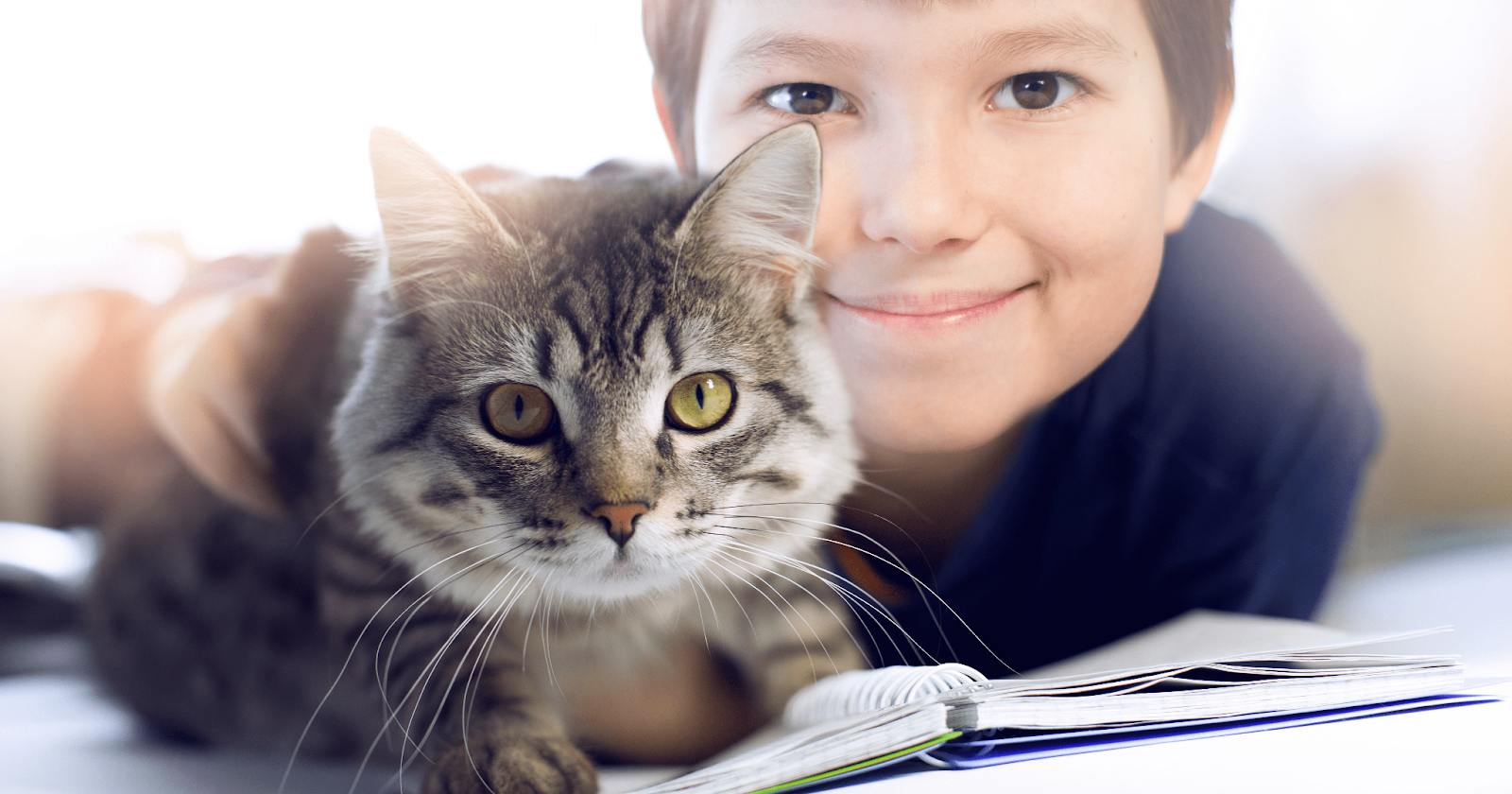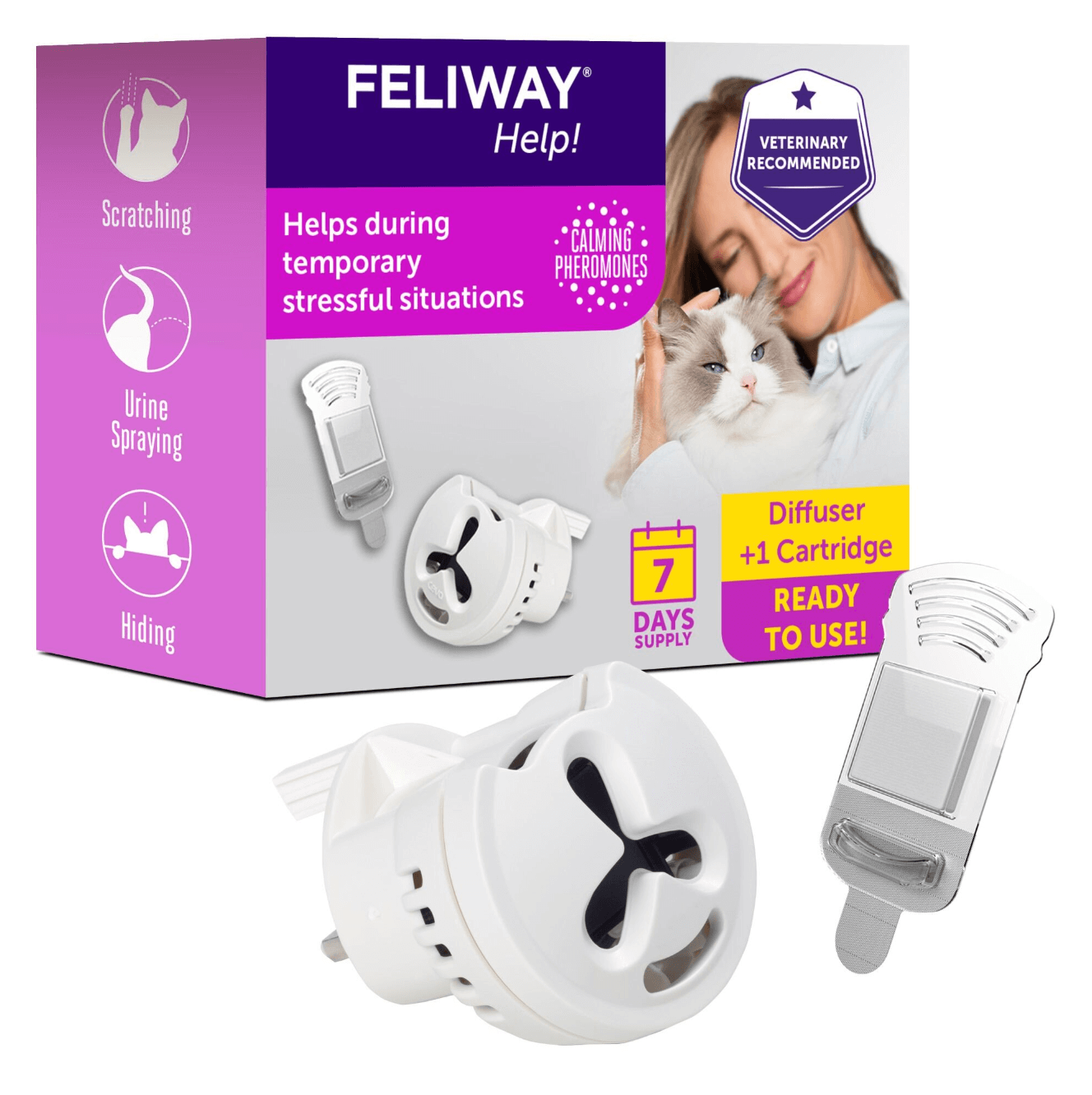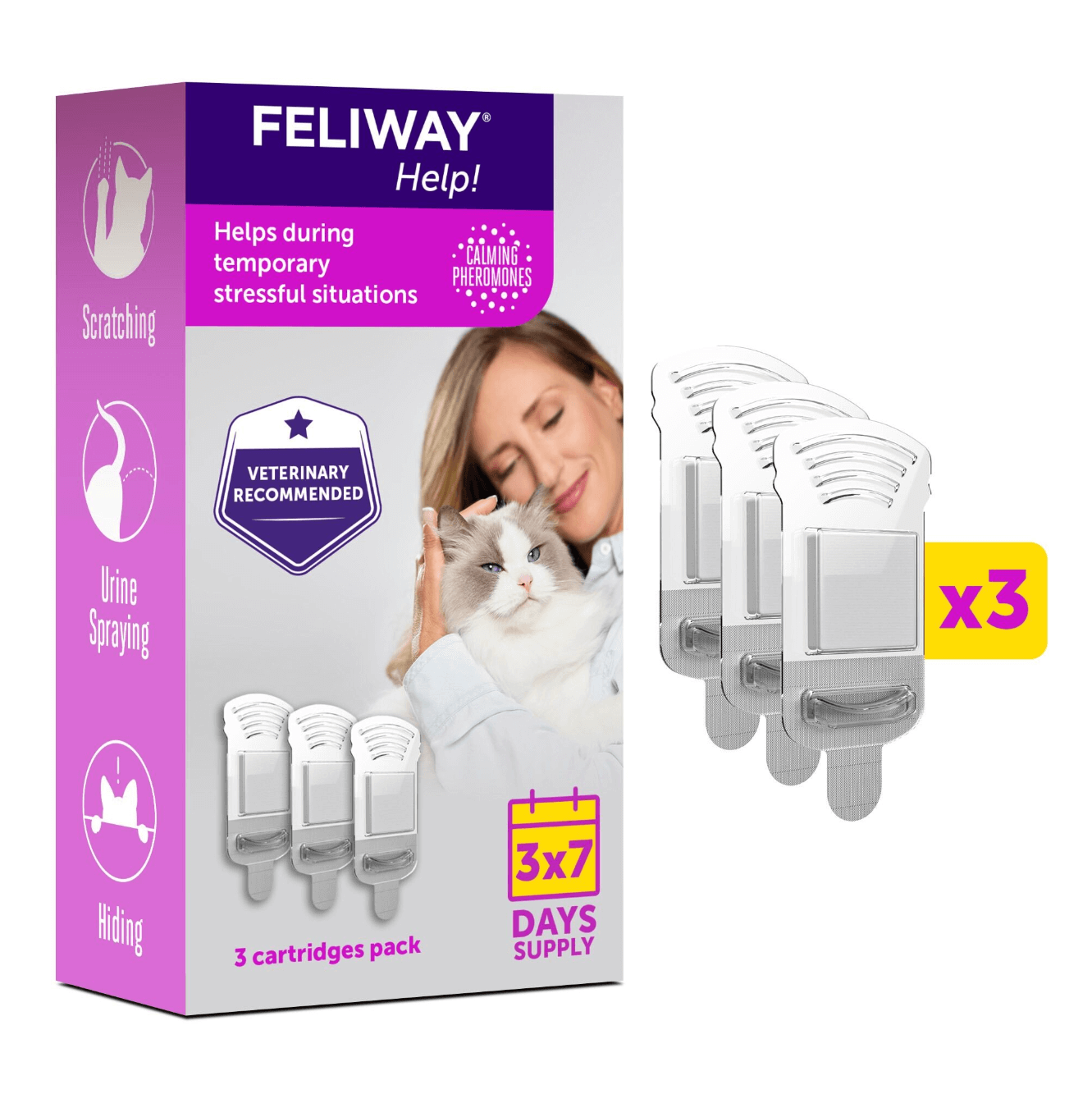
Returning to School or Work? Tips to Support Your Cat Through Changes
Changes around the home are a part of life! If you've recently changed your routine - such as taking vacation time or having children at home over the summer, you've likely adapted to it!
But as you switch back to your 'everyday' work and school habits - have you thought about what impact this may have on your cat?
The last week of the school holidays and the first week back are often busy and full of change! Excitement, nerves, and new school items ‚ - all provoke a different home environment which can send your cat's senses into overdrive!

So although your focus may be on the preparations, how can you ensure you support your cat through these changes?
Tips to Support your Cat Through Changes
Allow them to adjust gradually
Leave any new items of clothing or kit lying around for your cat to investigate in their own time, and especially the boxes they arrive in! We know that cats love cardboard boxes; not only does their curiosity get the better of them, boxes are great places to hide or have a well-earned snooze!
If you are introducing new toys to keep them entertained while you are at work, try these out a few days beforehand so that your cat will get used to them. A puzzle toy containing food can keep them entertained for long times, but it will be frustrating for them if they don't succeed, so make sure they get the hang of it before you leave them.
Leaving the TV or radio on can also help soothe your cat and keep them entertained but make sure you find their favourite channel before you go to work!
Use FELIWAY Optimum to help provide reassurance to your cat. Its advanced messaging provides cats with a feeling of enhanced serenity and helps them feel more comfortable and secure in their home. Install it in the room where your cat spends most of their time and it will help them feel relaxed when you are out.

Learn to spot the signs!
Understanding your cat's body language is essential for you to support your cat's wellbeing; being able to spot the signs of kitty anxiety or stress will help you support them in different circumstances. Subtle signs that your cat is not coping are:
- Overgrooming: Cats are fastidious creatures and like to groom regularly, but if you spot any bald patches caused by their grooming, it could be because they are stressed.
- Urine spraying or toileting: If these habits have changed, i.e. they are soiling outside their litter tray or urine spraying around the house, it could be they are trying to feel more secure by marking their territory.
- Hiding away for long periods: We know that cats like to hide, but if you notice this is happening more than normal, it could be a sign that they are feeling stressed or anxious.
- Eating habits: If a cat's routine changes drastically, it could affect their eating habits, so it's important that you keep them in their normal routine as much as possible.
- Increased vocalisation: Meowing more frequently or giving a low pitched yowl, could be an indication that your cat is unhappy
If you are worried your cat is not coping with the changes, contact your vet, as it may be that your cat has an underlying medical condition which is affecting how they can cope.
Keep to their routine
Even though your daily routine is changing, try to keep your cat's routine the same, i.e. their feeding times, play times and your bonding time together. For extra support and positive reinforcement, try a delicious Happy Snack by FELIWAY the calming liquid treat is purfect for sharing a relaxing moment together.
Do not move their beds, food bowls, scratching posts etc. to a different location as this could add to their anxiety, and check that their route in and out of the house is available at all times.
Allow your cat access to their favourite spots, even when you are not at home; they will find a lot of comfort curled up on their favourite shelf waiting for you to return.

Time other changes accordingly!
If you are considering another big change, such as getting another cat as a companion for your resident cat, make sure you consider both the timing of such a change, and assess if your cat is ready to cope.
Whenever you choose to introduce a new pet to the house, always think about your resident's cat's temperament, as well as the new animal so you are confident they will coexist happily. As a gradual introduction between cats is recommended, it is advisable to introduce a new kitty well in advance of the return to school or work. It will take a while for them both to adjust, so avoid the temptation!

Check out the FELIWAY blog for more advice, including all our articles from a kitty’s point of view, and don’t forget to sign up to our newsletter for updates straight into your inbox!





































